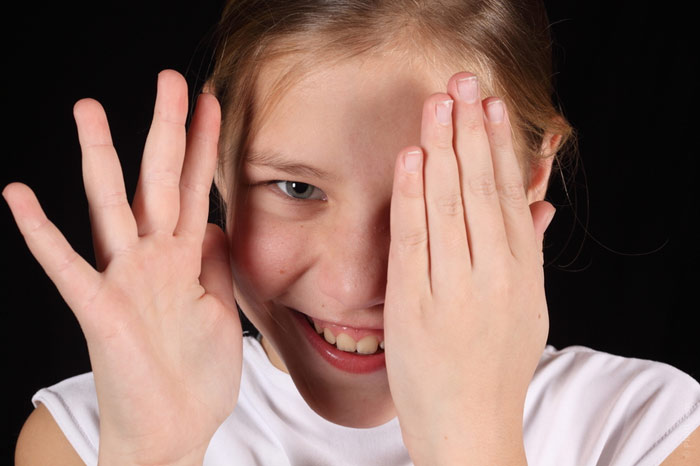9 Ways of Keeping Kids’ Eyes Healthy
We’re in the middle of August which is Children’s Eye Health and Safety Month, so there’s a good reason to take a few steps to make sure your kid(s) is not having problems with their appreciation of the richness of color, its shapes and hues this world can offer. Let them enjoy the full vibrancy of the range with all its shades, it’s the least you can do for them, right? And it’s not so hard to take a few simple steps to ensure their eyesight being at its best. Like these ones:

Children Must Eat Healthy Food
While your kids are taking a nicely balanced diet embracing fruits, green leaf veggies (kale, spinach, broccoli and other health winners), and omega-3 rich fish (salmon, halibut, tuna and others) you can be sure their eyesight is being kept well-nourished with all the ingredients that are conducive to their excellent health and functionality.
Physical Activity
As long as they move and have their muscles working actively children stand a good chance of avoiding some eye diseases including diabetes that can bring on blindness.
Protect Kids’ Eyes
Your kids must be taught when they ought to protect their eyes – during some eye-risk sports games that allow much pushing around or send objects hurling through the air, when gardening, using dangerous tools or chemical substances.
Wear Eyeglasses in the Sun

They should have ample protection from the sun which would be ensured by employing 100% UV blocking sunglasses when stepping out of the house enhanced by a hat with a wide brim. Tell them not to look at the sun.
Keep Your Kids Informed
Your kids should understand that when something is different with how they see things – no matter how it can be manifested, their eyes begin to hurt, the things they look at double up or go spotty, they start to jump or get blurry – they must always report it to a parent or a school official. They may easily omit to complain about it because they don’t give a thought to it believing it may pass soon. Adults should also notice when a child viewing habits change: they bring up objects very close to the eyes, change the tilt of their head, wink more often than it is usual or become given to rubbing their eyes. These symptoms mean a consultation with an eye specialist.
Take Breaks
Regard your children as they are using their tablets or smartphones. Their posture will tell you volumes about their eyesight. They really shouldn’t hold their gadgets up to their eyes – the comfortable distance for working with them is the one from the chin to the elbow, known as the Harmon distance. If the posture is wrong it may interfere with their bodies’ growing right. If the child gets to look at a screen of any device including a TV set for a lengthy period, let them observe the 20-20-20 rule, meaning they need to look away every 20 minutes for at least 20 seconds concentrating at an object located at the distance of 20 feet.
Replace Glass Lenses When Time Comes
If your kid already wears glasses and his/her prescription changes over time, it’s high time to think about replacing lenses. The good point is, your child will probably be able to keep his/her old frames and only get the new lenses.
Always Wash Your Hands Before Touching Your Eyes
Contact lenses require some hygiene rules you should get from your eye specialist and stick to them unceasingly. Also, if you have a daughter who already wears a bit of eye makeup to school, tell her not to keep old makeup on and never ever share it with her girlfriends.
Regular Visits to the Eye Doctor

If you want to have your eyes functioning properly, the most important thing is to have your and your family members’ eyes checked by an eye specialist on a regular basis.
Eyesight is a marvelous gift that should be looked after well; it’s easy to teach your kids the basic rules of eye health which will go a long way to keep their sight as keen as it should be. Show your children that you are observing these tips regularly and never tire reminding them that thay want to see the beauty of this world in its full glory, without suffering from defects they could have avoided easily.
